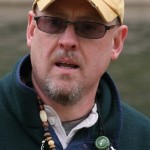“Therefore, since we are surrounded by such a great cloud of witnesses, let us throw off everything that hinders and the sin that so easily entangles, and let us run with perseverance the race marked out for us.” —Hebrews 12:1
Francis Schaeffer
Man has dominion over the “lower“ orders of creation, but he is not sovereign over them. Only God is the Sovereign Lord, and the lower orders are to be used with this truth in mind. Man is not using his own possessions….. Nature belongs to God, and we are to exercise our dominion over these things not as though entitled to exploit them, but as things borrowed or held in trust, which we are to use realizing that they are not ours intrinsically. Man’s dominion is under God’s Dominion and in God’s Domain.
Surely then, Christians, who have returned through the work of the Lord Jesus Christ to fellowship with God, and have a proper place of reference to the God who is there, should demonstrate the proper use of nature. We are not going to use it as fallen man uses it. Christians, of all people, should not be destroyers. We should treat nature with an overwhelming respect.
The Church has not spoken out as it should have done throughout history against the abuse of nature. But when the Church puts belief into practice, in man and in nature, there is substantial healing. One of the first fruits of that healing is a new sense of beauty.
If I love the Lover, I love what the Lover has made…. If I don’t love what the Lover has made—in the area of man, in the area of nature—and really love it because He made it, do I really love the Lover?
—Francis Schaeffer, Pollution and the Death of Man, 1970
Francis Schaeffer (1912 – 1984) held to the inerrancy of Scripture and passionately proclaimed the “sanctity of human life.” He accurately predicted that if the Church did not participate in the debates surrounding ecological strategy, then the emerging environmental movement would adopt forms of pantheism for its foundations. He and his wife, Edith, revitalized the ancient idea of intentional Christian community and formed L’Abri Fellowship in Switzerland. They welcomed and challenged seekers and scholars from around the world.









